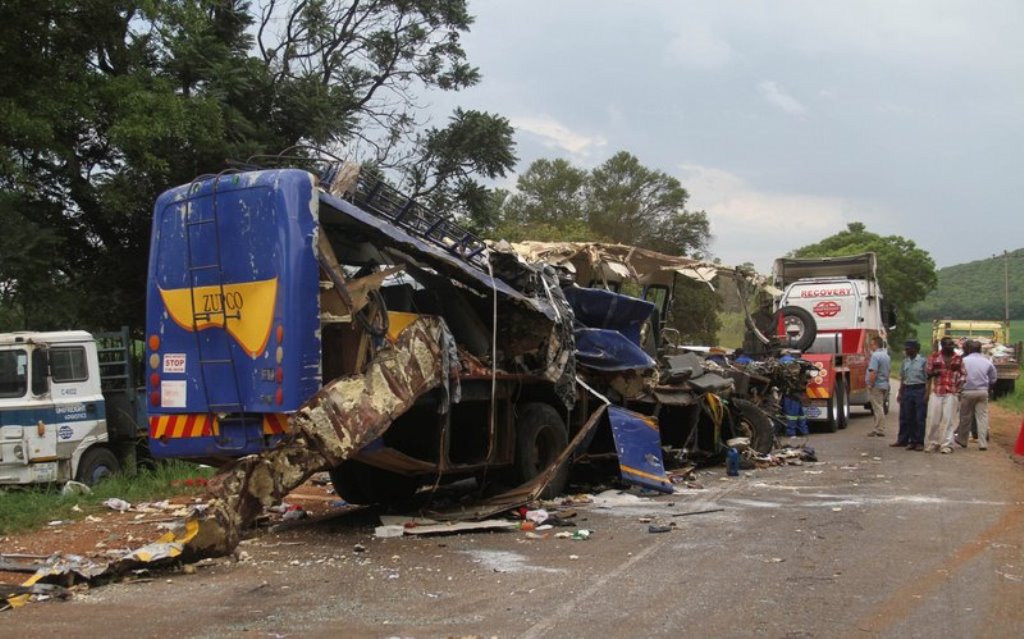AfricaPress-Tanzania: SATURDAY (November 14, 2020), Tanzania joins other countries across the world to mark World Day of Remembrance for Road Traffic Victims (WDR) commemorated each year on November 15.
It is a high-profile global event to remember millions of people who have been killed and seriously injured in road accidents worldwide.
WDR also acknowledges the sufferings of millions of affected victims, their families and communities added each year to the countless millions already suffering a truly tremendous cumulative toll.
Keeping this global event in mind, the winner of Excellence in Journalism Award Tanzania (EJAT) 2018 on Tourism and Conservation category, Mr Salim Mhando, died in a road crash that involved two vehicles that collided head-on alongside four other workers of Azam Media in Shelui, Singida Region, last year.
The victims were on their way to a field assignment travelling on a mini-bus from Dar es Salaam when their vehicle collided head-on with a truck.
It was a tragedy not only for his family, but also for the media house he was serving with all his heart in various fields as technical director whose death occurred while he was on the way to fulfill his responsibilities as a vision mixer.
It is a day on which we also extend our gratitude to emergency service providers while highlighting various ways to deal with road accidents which have been a major problem that continues costing families, communities and nations across the world.
Road injuries and deaths are shocking and horrific incidents that leave an indelible impression where each year the number of deaths on the world’s roads remains unacceptably high, with estimated 1.35 million people dying and those sustaining injuries are between 20,000 and 50,000 people as stated in the 2018 World Health Organisation (WHO) status report on road safety.
The grief and sadness caused by Mhando’s tragedy is great due to the leading cause of deaths of children and young adults between 5 and 29 years of age as per world reports, considering that most of these road crashes are inevitable. This year’s WDR reflects on the best way to remember, support and act to help prevent road accidents.
Police statistics released last year show that road crashes decreased in the previous two years by 28 per cent, while the mortality rate also dropped by 19 per cent and injuries decreased by 24 per cent.
Despite a promising reduction in road crashes in the country and fatality rates we need to highlight the dangerous nature of commuting.
A report on road safety incidents last year released by the Police Force shows that there were 1,160 motor vehicle crashes reported in 2019 compared to 1,046 reported previously which is an increase by 11 per cent of all crashes caused by reckless driving at the time.
WDR has also become important for governments and all those, whose work involves crash prevention or response to the aftermath of crashes, since it offers an opportunity to demonstrate the enormous scale and impact of road deaths and injuries, calls for an end to the often trivial and inappropriate response to fatal road accidents and injuries and advocates concerted action to stop the carnage.
There have been a series of road crashes involving government vehicles which caused deaths and injuries to government officials and serious damage to government vehicles and infrastructure.
A police status report (2018) suggests that government drivers who commit road traffic offences, including speeding should not be defended by their bosses, instead they should be held accountable for their actions.
Measures are taken to raise the awareness of all groups especially drivers in collaboration with the police and other government officials.
“At least 96 per cent of all road crashes are caused by drivers’ oversight or human errors and as from January to date, 37 bus drivers had their licences suspended for six months accordingly,” said Head of Legal Unit in the Police force, Superintendent of Police Deus Sokoni.
WHO figures show that low income countries have 1 per cent of the world’s registered vehicles, but 13 per cent of all road traffic deaths unlike high income countries with 40 per cent of the worlds registered vehicles but only 7 per cent of road traffic deaths.
This special day of remembrance for victims of road accidents and their families which is celebrated across the world not only for civil society organisations, provides an opportunity for other stakeholders and reminds the government of its role and society as a whole.
Addressing the media concerning WDR, a legal officer from Tanzania Women Law Association (TAWLA) Mary Richard invited all stakeholders to fully integrate a gender perspective in all policymaking and implementation related to road safety.
“Due to the deaths of the victims of road crashes or permanent disabilities, women have been responsible for caring the injured or children left behind,” said Ms Richard, who is project coordinator of TAWLA.
A national professional officer, Violence and Injury Prevention from (WHO), Ms Mary Kessi, cheered the media for their continued commitment to road safety and implementing appropriate social marketing campaigns to raise awareness and commemorating WDR, appealing to appropriate acknowledgement of the victims of road traffic crashes and their families.
WDR was started by British road crash victim charity, RoadPeace, in 1993 and was adopted by the United Nations General Assembly in 2005.
According to the UN, the objectives of WDR 2020 are to provide a platform for road traffic victims and their families to remember all people killed and seriously injured on roads, acknowledge the crucial work of emergency services, draw attention to the generally trivial legal response to culpable road deaths and injuries, advocate better support for road traffic victims and victim families and promote evidence-based actions to prevent and eventually stop further road traffic deaths and injuries.



